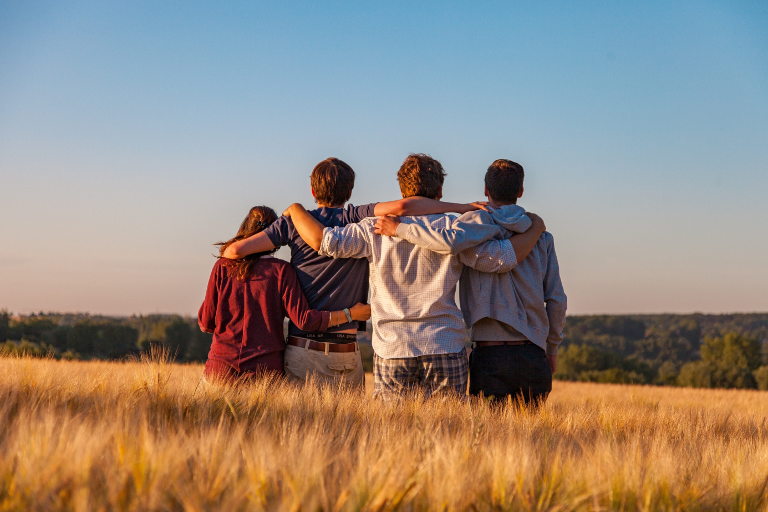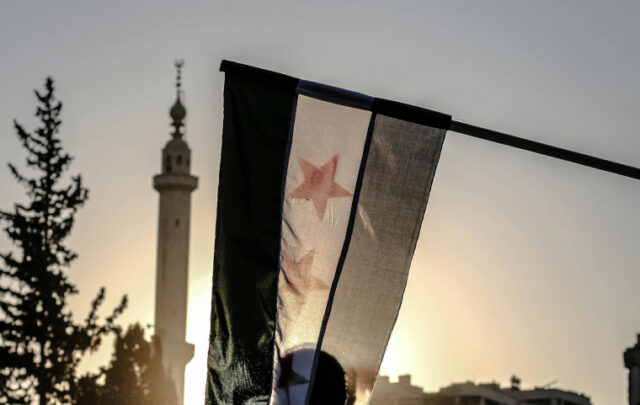It was a summer of unease for many people, as regular news of extreme floods, fires, storms and heat waves added to a sense of foreboding. That was heightened when the inter-governmental report on climate science issued a “code red for humanity” according to the head of the United Nations. For us in Extinction Rebellion, this was not news, as we have been living with this dire outlook for years. But witnessing more people wake up to the peril, I renewed my feeling that it isn’t enough to focus only on demands for government action to cut emissions. It is important to share what we have learned about the positive and negative ways of responding to a shocking realisation of our vulnerability. That way more of us might respond well together to the difficulties ahead.
There is zero sense or benefit in saying ‘I told you so’ about climate chaos. Instead, when I meet people who are in some shock about the depth of the crisis, it takes me back to how I felt when I first perceived this existential threat to life on Earth. It was as if a bomb had dropped on my life. It changed everything. A mother of three, reckoning with a horrific reality for my children and the children of all species, I was in deep shock. I shook for days. My sense of identity crumbled and collapsed in on me. But I was fortunate because I knew people who had experienced the same shock before. Literally held and supported by a loving community of fellow rebels, I was able to face the pain. And as a trauma therapist, I knew I needed to feel it, sit with it, and transform it into a new sense of direction. I emerged with the motivation to neither respond with aggression or numbness, but to seek ways of reducing harm and learning from the disaster. I committed full time to establishing and growing Extinction Rebellion and joined the Deep Adaptation Forum, which helps people find meaningful ways to respond.
There are still times when I shudder from the news and find it difficult to process. Since that summer of 2018 I have wondered whether people who were suffering what I went through during the initial shock would be finding the kind of support I received. If they were relying on the way the mass media was talking about the climate, would they discover the possibilities that I was fortunate with? Could the media tell the truth about the deeper emotional and psychological implications of this situation? I watched the response of journalists and scientists to the terrible climate events and new science. There was a decent amount of coverage, with most of it focused on how humanity needs to reduce emissions. Some commentators said it is unhelpful to conclude it is too late to prevent catastrophic change, arguing that we must maintain hope that we can prevent a catastrophe in order to keep trying. In saying that, they were ignoring the activism of thousands of people in Extinction Rebellion and beyond, where our activism does not rely on ideas that we are going to fix this situation. In saying that they were avoiding the true pain of the situation and the full possibilities for humanity to find a regenerative future. An avoidance of emotions which comes from understandable fear, but which risks producing damaging consequences.
At least, according to new research. In a new paper in a psychotherapy journal, Professor Jem Bendell presents evidence that suppressing discussion of bad-case scenarios reflects the type of aversion to difficult emotions which has caused pathological responses in other situations. Not only can it lead to emotional and relational difficulties, but it can lead to a shift in political outlooks in ways that support counterproductive public policies. Citing studies that show avoiding difficult emotions is associated with support for authoritarianism, he warns that the strand of environmentalism currently demonising people for concluding bad-case scenarios could morph into something far more malevolent. His paper is a research-based warning against the rise of authoritarianism amongst people fearful of climate chaos, or other disruptions to our sense of safety and normality.
It is a warning which many in Extinction Rebellion are alive to. Most people I was with on the streets during the peaceful rebellion last August are no longer pretending that humanity will escape massive loss and damage. Like me, they have had to learn to bear the unbearable feelings. We don’t need to believe we can prevent catastrophic change in order to try and do our bit to soften the fall, prepare for the worst and learn from it all. This is what we call ‘deep adaptation’ to the situation and it can only be done with fierce love, compassion and respect for human dignity. We are in this together. Your safety depends on mine and mine on yours, as does my flourishing. We reach out to all political ideologies and all communities. We move beyond the story of separation that divides us into right and wrong, left and right, good and bad. We turn attention to how we heal and repair the relationships between all of humanity. It is why when faced with disruptions from climate chaos that we are organising around a principle of ‘co-liberation’, not authoritarian control.
It is important that more people who wake up to the climate crisis know that many of us are responding in such ways. In the process we are asking deeper questions about the root causes of the ecological breakdown. Sadly, that introspection is also severely lacking from mainstream media coverage of the climate crisis. “Why are we in multiple crises all over the world?” is rarely asked. There is no challenge to myths of progress or human superiority and autonomy that have been driving modern civilization’s failing quest to shape the world according to our designs. Where is the doubt that continuing on the threadbare path to try to find fixes within the existing systems can’t offer us a future worth living for? The systems and its culture that we have co-designed are what is causing our collapse. They are violent, and they make us less than the brilliant beings that we are.
The media stories need to improve for more of us to have more meaningful conversations about avoiding making situations worse from our responses to vulnerability. If we respond to the growing vulnerability by hiding from our failures, by caring for only our in-group while demonizing others, and by allowing the loss of civil liberties, then we will be complicit in the breakdown of our societies.
Next summer will not likely be any better, as the climate will be destabilising for many years to come. That awareness of the tide of climate tragedy is painful and terrifying, but it also has the power to change what it means to be alive from now on. It is a call to both a personal and cultural initiation process that is not to improve, but to transform. Such transformation can go much further than cutting emissions, drawing down carbon or simple adaptations. It can even go beyond changing our mindsets. It could transform what I call our “heart-set”, so that whatever comes next, we will face it with an unwavering and universal love.
Teaser photo credit: Photo by Dim Hou on Unsplash





